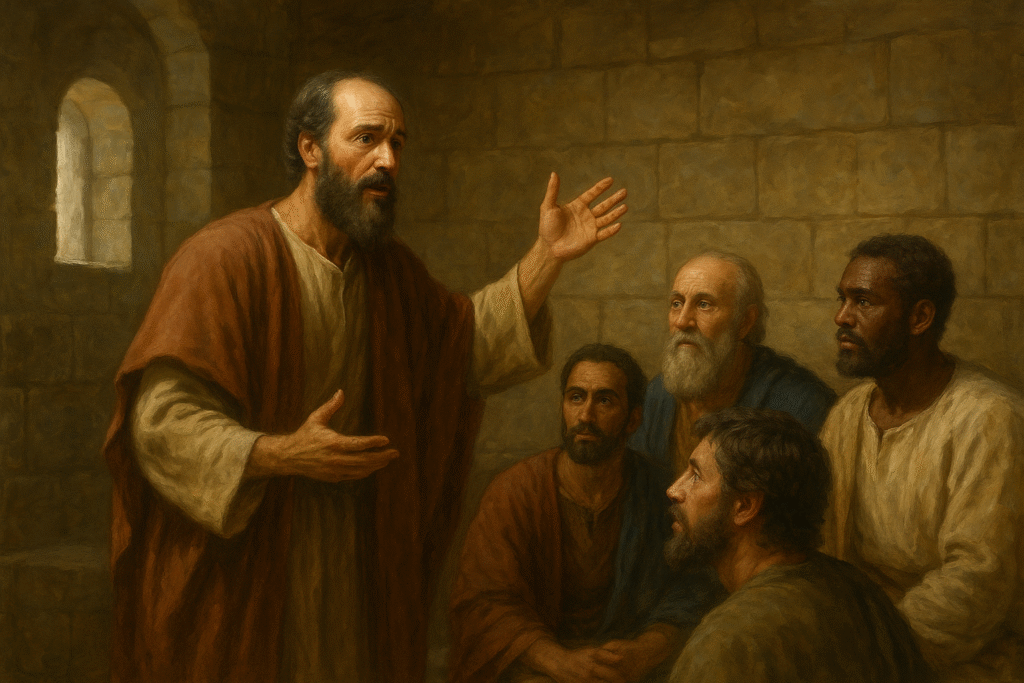ACTS 13- Paul's Missionary Journey Begins

Acts 13 marks a turning point in the narrative. Up to this point, the gospel has moved from Jerusalem to Judea and Samaria. Now the Spirit launches the church into the wider Gentile world. This is where Saul becomes Paul. This is where missionary ministry begins. This is where the church recognizes that the gospel is not confined to any ethnic group or region. It is for all people.
A Diverse Church Led by the Holy Spirit
Acts 13:1
Luke introduces us to the leadership in the church at Antioch. It is a beautiful picture of diversity and unity.
There were prophets and teachers. These were two distinct offices in the church. Among them was Simeon called Niger, a name that suggests African heritage. Lucius of Cyrene also came from North Africa. Manaen was raised with Herod Antipas, a man of political influence. Then we see Barnabas and Saul, both Jews yet shaped by different experiences.
Antioch was the first multicultural Christian hub. God placed people from different nations and backgrounds together. It was from here that the first missionary journey would be launched. This teaches us that the more diverse a church is, the clearer the reflection of God’s heart becomes.
Commissioned by the Holy Spirit
Acts 13:2 – 3
While the congregation was worshiping and fasting, the Holy Spirit spoke. The Spirit set Barnabas and Saul apart for a work that would change history. The church prayed, laid hands on them, and sent them out.
This moment reminds us that ministry is not based on preference or convenience. It is rooted in obedience. Before Paul ever preached to the Gentiles, he was released and blessed by his community. That is spiritual order.
Cyprus and the Confrontation With Bar Jesus
Acts 13:4 – 12
Paul and Barnabas sailed to Cyprus. It was the home of Barnabas and a strategic starting point. They preached in the synagogues first because the Jews already held the Scriptures in high regard. Their journey eventually led them to Paphos, the seat of Roman authority on the island.
There they met a man named Bar Jesus also called Elymas. He was a magician who operated with demonic influence. He opposed the gospel because he feared losing his influence over the proconsul. Paul, filled with the Holy Spirit, confronted him. Elymas was struck blind. The proconsul believed because he saw the power of God.
This teaches us that the gospel is not a powerless message. It confronts spiritual deception. It exposes falsehood. It brings light where darkness has ruled.
From Saul to Paul
Acts 13:9
This passage marks the moment Saul begins to be called Paul. Saul was his Hebrew name. Paul was his Roman name. As he entered Gentile territory, he used the name that would give him access and connection. What God placed in him was the same, yet the name shifted to fit the mission.
Sometimes God will adjust how you express yourself so you can reach the people He assigns to you.
John Mark Leaves and Paul Moves Forward
Acts 13:13
John Mark leaves the journey and returns to Jerusalem. We are not told why. Later we learn that Paul was not pleased with his departure. This moment reminds us that ministry is not without relational tension. Yet even here God worked. John Mark later became useful to Paul and became the writer of the Gospel of Mark.
Nothing is wasted when God is involved.
Paul’s Sermon in Antioch of Pisidia
Acts 13:16 to 41
Paul delivers a sermon that mirrors Stephen’s approach. He traces Israel’s history, shows how Jesus fulfills every promise, and presents the invitation to believe. His message is rooted in Scripture and centered on Christ.
He explains that the law could not justify humanity. Only Jesus could. Through Him we receive forgiveness and justification.
This sermon is a reminder that the gospel is not a self improvement message. It is the declaration that only Christ saves.
The Gentiles Receive the Word
Acts 13:42 to 52
The Jews responded positively at first. However, when nearly the entire city showed up the following Sabbath including many Gentiles jealousy arose. They contradicted Paul and opposed the gospel.
Paul then declared that they would now turn to the Gentiles. He quoted Isaiah 49 to demonstrate that this was God’s intention all along. Those who were appointed to eternal life believed. The word spread throughout the region. The city was stirred. Eventually Paul and Barnabas were expelled.
Even in rejection the gospel advanced.
Prayer
Thank You for the example of the church at Antioch
Thank You for showing us that the gospel is for all people
Fill us with the same boldness and clarity You gave to Paul and Barnabas
Help us to recognize the leading of the Holy Spirit in our own lives
Strengthen us to confront darkness with Your light
Teach us to walk in unity with all believers
Make our hearts willing to go wherever You send us
May Your word spread through us to the ends of the earth
In Jesus name
Amen
Father
